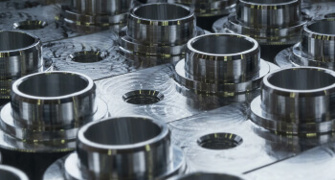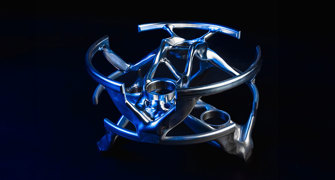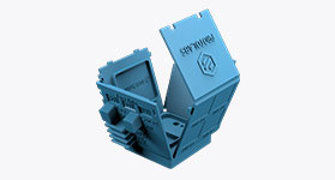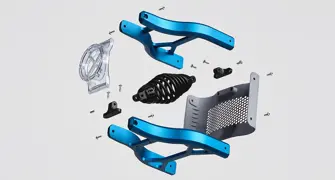
Pandemic Response
Your masterclass in product design and development
Protolabs’ Insight video series
Our Insight video series will help you master digital manufacturing.
Every Friday we’ll post a new video – each one giving you a deeper Insight into how to design better parts. We’ll cover specific topics such as choosing the right 3D printing material, optimising your design for CNC machining, surface finishes for moulded parts, and much more besides.
So join us and don’t miss out.
Insight: Pandemic Response
Transcript
Hello and welcome to this week’s Insight. Today I’m going to explore something that has affected all of us: the coronavirus pandemic. I’m not going to talk about the virus or lockdown but focus on how this crisis has seen rapid manufacturing technology really come of age.
It has certainly been a very dark time but I guess one glimmer of positivity is how such disruption can really speed up the pace of change.
In our world of manufacturing there have been some glowing examples of businesses pivoting to supply all sorts of medical equipment, and the speed of the response has been nothing short of amazing.
Quite simply it has shown that when there is a real need, then manufacturing technology has some of the answers.
Product development and new product and component delivery times have been slashed to previously unthought of deadlines. Technologies such as 3D printing, CNC machining and rapid injection moulding have all been at the forefront of this response. We have all found ways to cut time out of production schedules.
Let me give you just one great example of how this has worked and what lessons we can learn.
Mercedes-AMG High Performance Power Trains worked with University College London to support the development of its CPAP device last year. CPAP stands for continuous positive airway pressure system. It helps coronavirus patients with lung infections breath more easily. Working with the university, the idea was to reverse engineer a device that they could rapidly manufacture in its thousands.
The interesting thing about this project is that the whole supply chain had to be aligned and work to some incredibly tight deadlines. Developing a product with new components, getting it through regulatory approval and into production to meet a very real emergency has never been more pressing.
Staggeringly it took less than 100 hours from an initial meeting to production of the first device for evaluation and regulatory approval. Following approval, the government committed to ordering 10,000 CPAP devices.
But that’s just the start of the story, the NHS urgently needed the devices so the pressure was on to deliver as quickly as possible. This is when you really do need to have your supply chain aligned and working to the same goal.
At this point let me tell you about the components that we supplied for the device. It shows how manufacturing technology is changing to deliver parts more quickly than ever.
Mercedes-AMG needed ten thousand brackets to hold the device next to a patient’s bed and a cap to shield the air entry into the device.
Both would be injection moulded. Normally developing tools for injection moulding would take 10 weeks or more. We did it in just three days by using aluminium moulds instead of steel.
The first step analysed the design for manufacturability for these components and some thinking on how tight deadlines for production could be met. This led to four quick design iterations, material verification for both parts and the decision to make the bracket using two tools to reduce lead times.
There were also some slight alterations to the cap for air entry, where we explored the idea of using one tool with two cavity moulds in order to meet the 1100 daily parts needed.
The part design was analysed through software which produced both a quote and completed the design for manufacture analysis. This also calculated the automated turn time.
When the order was placed, software designed the tool and also determined the best location for gating. From here 3 axis CNC milling centres produced the moulds.
The next step was to produce initial sample parts from nylon 30% glass fibre and acetal co-polymer which were sent for inspection. These were approved and we agreed on run rates of 1100 parts per day for both components. These would be delivered at five different intervals over 72 manufacturing hours to support the lineside production at Mercedes.
The whole process from the first prototype to delivery of the CPAP systems to hospitals took just two weeks.
This of course is just one story among many but there are lessons for all us in manufacturing.
First, digital manufacturing and the use of software for fast and accurate designs is a must for rapid response.
Second, if you align your supply chain with a clearly defined goal then you can challenge previously held norms of product development times.
Third, don’t be afraid to challenge rules of thumb. In this case there was no need to use steel moulds which have ten-week turnaround times. Aluminium was fine for a small to medium sized production run with the parts produced meeting the stringent requirements of medical devices.
And fourth, perhaps best of all, it shows what is possible when people really believe in a cause and pull out all the stops to achieve something truly worthwhile.
I don’t think manufacturing and its supply chain will be the same when we come out of this crisis. They will be better, faster and more responsive. Now that’s among the silver linings from what has been a very dark cloud.
On that note I’ll wish you a great weekend and see you next week.
With special thanks to Natalie Constable.









